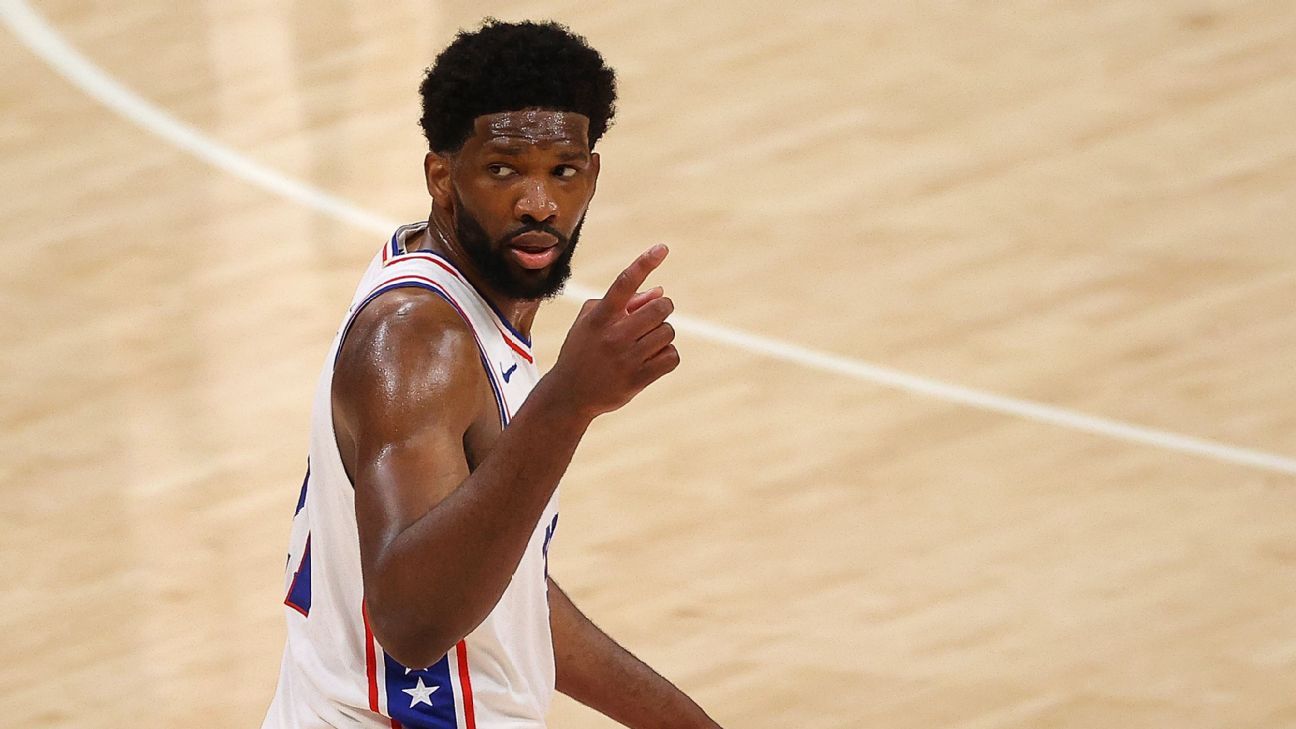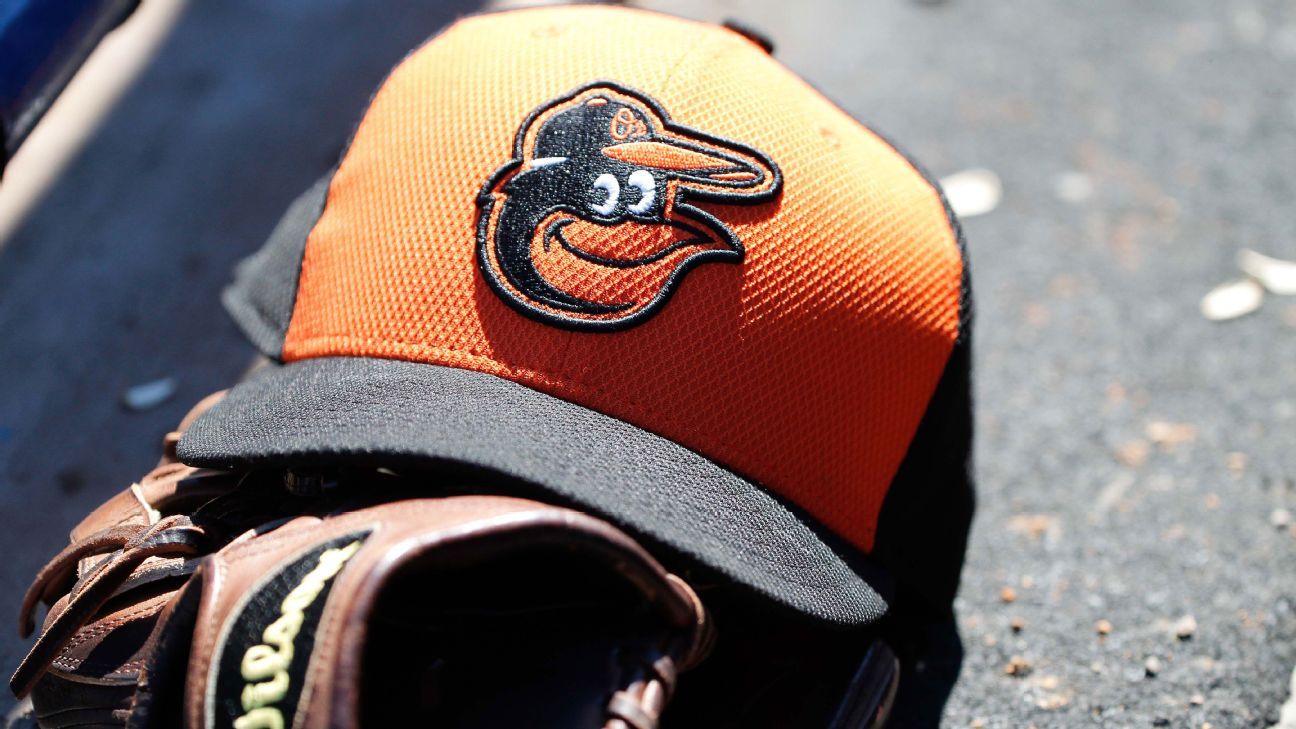
The Atlanta Hawks' double-teams came early and often, with help defenders behind them lying in wait. Such is the attention that Philadelphia 76ers center and MVP finalist Joel Embiid demands when he's working down low.
With less room to operate in Game 3 of the NBA Eastern Conference semifinals, Embiid was limited to 14 field goal attempts, along with six shots that resulted in a trip to the free throw line -- a drastic reduction from his 21 shots in Game 1 and 25 in Game 2. Despite the smaller diet, Embiid maintained his dominance and efficiency in the Sixers' 127-111 win.
Embiid's production was vital to Philadelphia's attack on Friday night, but his versatility as an offensive player paced the Sixers to arguably their most impressive performance this postseason. A primary reason Embiid didn't equal his output of attempts in Game 3? He was finding teammates out of the Hawks' double-teams. On three occasions, he hit the Sixers' perimeter players for clean 3-pointers. Embiid racked up eight assists, his most since an April 19 regular-season loss to the Golden State Warriors.
"I've come a long way," Embiid said. "But, I feel like this year the game just slowed down for me. The way I see the floor is completely different than previous years ... I just try to make the best play possible. Even if I got to get a shot up myself, there's so many ways I can do it."
As the biggest body on the floor, Embiid provided the screens and rubs that fueled the Sixers' aggressive attack. All night long, the Hawks found themselves pancaked by picks from Embiid. As a result, the Atlanta defense spent much of the night scrambling.
Embiid doing it on defense and offense
Joel Embiid denies Onyeka Okongwu on one end, then comes back and grabs the offensive rebound for the dunk on the other.
"It was like a downhill game tonight for us, where they were turning the corner on those screens with Embiid and [Ben] Simmons, and basically just playing in our paint," Hawks coach Nate McMillan said. "We've got to do a better job of giving help, being up on the screens -- but the guards have to get through those screens."
Remarkably, Embiid has done it all with a meniscus tear in his right knee, an injury he suffered in Game 4 of Philadelphia's first-round series against the Washington Wizards. Embiid is receiving steady treatment on the knee, as he forges ahead in the postseason.
"Playing with a torn meniscus is not easy," Embiid said. "Pain is going to be there. You just got to manage it. Tonight, rolling on my ankle, and falling on my back, it's tough. But, it's the playoffs, I can't complain. I'm here to play. I've said in the past, whatever I can do, I'm gonna give it the best I got. Even if I'm playing injured, I still got to do my job. That's why they pay me, and I want to win the championship."
As heavy a load as Embiid carries for the Sixers, he received some welcome help from the supporting cast on Friday night.
The Sixers' starting lineup has posted an eye-popping net rating of 39 per 100 possessions better than the competition. Outside of that unit, Philadelphia has struggled -- a minus-1.9 in 231 minutes, according to ESPN Stats & Information research. In Game 3, the Sixers' reserves shined. Backup shooting guard Furkan Korkmaz drained a trio of 3-pointers -- two of them courtesy of kickouts from Embiid. Korkmaz finished with 14 points in 27 minutes, and a game-high plus-24.
"Tonight, Furk was balling," Sixers forward Tobias Harris said. "That's the thing with the playoffs and the beauty of the playoffs, being on a team like ours -- it could be a different guy every night who brings that added effort. You saw in the first half Furk got hot out there, got his swag and his confidence shooting the 3 out there and made a big 3 in the fourth quarter. You love to see it."
Korkmaz wasn't alone. The Sixers ran 11 deep in Game 3, each member of the bench contributing key minutes. In just his second season, Matisse Thybulle has emerged as a premier defensive stopper, and took on the task of guarding Trae Young for significant stretches. Shake Milton, who as recently as Game 1 fell out of coach Doc Rivers' rotation, has been reborn as a microwave off the bench. Dwight Howard mans the inside and patrols the glass for the Sixers when Embiid is off the floor, while George Hill offers a steady veteran hand to the second unit.
This is a welcome development, because depth hasn't been a strong suit of the Sixers in recent seasons. Their bench's shooting has been erratic, the defense a measurable fall-off from the starting unit's stalwart half-court and transition effort, and the flow has often been gummy. The consequence has been added pressure on Embiid.
The deeper the Sixers advance into summer, the more essential reliable production from the reserves will be. With Danny Green's prognosis uncertain, the Sixers will have to tap the second unit for a stand-in.
This incarnation of the Sixers is one of the more unorthodox contenders remaining. In an NBA dominated by the high pick-and-roll and 3-pointers, they rely on the league's most dominant post player and a unicorn of a 6-foot-10 point guard who doesn't shoot. Their supporting cast is an assortment of imperfect players who have a speciality or two, yet are far from complete.
Yet, here are the Sixers, working their strengths and filling their roles. As Embiid says, they've come a long way -- which is encouraging, because they still have a long way to go.















 Phone: (800) 737. 6040
Phone: (800) 737. 6040 Fax: (800) 825 5558
Fax: (800) 825 5558 Website:
Website:  Email:
Email: 






